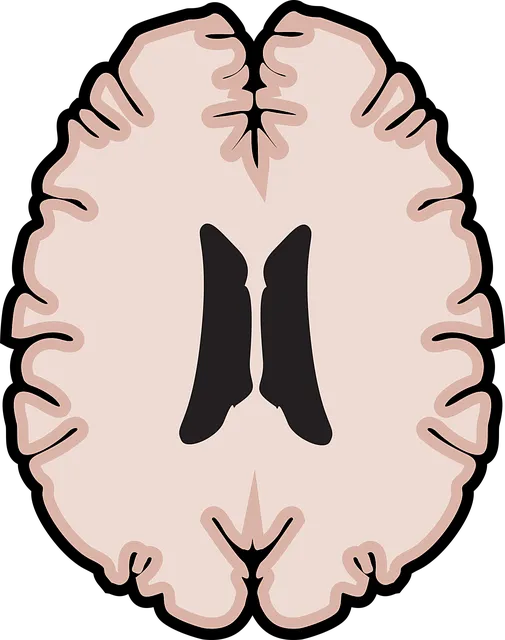Littleton Kaiser Permanente's comprehensive mental health coverage prioritizes emotion regulation as a vital skill for healthcare providers, especially in high-stress environments. Through education programs offering burnout prevention and stress management workshops, they teach effective techniques like mindfulness, cognitive reframing, and physical activity. This holistic approach enhances resilience, improves patient care, and fosters a healthier work environment. By providing access to specialists and tailored programs, Kaiser Permanente empowers individuals with tools for managing emotions and improving overall well-being. Active participation from instructors and learners is crucial for implementing and sustaining these changes.
Emotion regulation is a vital skill, especially in today’s fast-paced world. This comprehensive guide explores effective techniques, with a focus on the supportive role of Littleton Kaiser Permanente mental health coverage. We delve into the significance of understanding emotion regulation, providing a practical guide to various techniques, and offering strategies for successful implementation. For educators and learners alike, these insights aim to enhance emotional well-being and foster resilience. Discover how accessible resources like Littleton Kaiser Permanente mental health services can empower individuals to navigate their emotions effectively.
- Understanding Emotion Regulation: Unraveling the Concept and its Significance
- The Role of Littleton Kaiser Permanente Mental Health Coverage in Teaching These Techniques
- Effective Emotion Regulation Techniques: A Comprehensive Guide for Practice
- Implementing and Sustaining Change: Strategies for Instructors and Learners
Understanding Emotion Regulation: Unraveling the Concept and its Significance

Emotion regulation is a vital skill that enables individuals to manage and adapt their emotional responses in various situations. It involves understanding and controlling feelings, often described as the ability to stay calm and composed under pressure. This concept is particularly relevant in high-stress environments like healthcare facilities, especially with the ongoing challenges posed by the healthcare industry’s demanding nature.
At Littleton Kaiser Permanente, mental health coverage plays a significant role in supporting healthcare providers’ well-being. Burnout Prevention Strategies for Healthcare Providers are increasingly being recognized as essential components of comprehensive employee welfare programs. Mental Health Education Programs Design and Stress Management Workshops Organization can effectively teach emotion regulation techniques, helping professionals navigate the emotional demands of their jobs. By learning these strategies, healthcare workers can enhance their resilience, improve patient care, and foster a healthier work environment.
The Role of Littleton Kaiser Permanente Mental Health Coverage in Teaching These Techniques

The Littleton Kaiser Permanente mental health coverage plays a pivotal role in promoting and facilitating the teaching of emotion regulation techniques. With comprehensive mental health services integrated into their healthcare network, Kaiser Permanente ensures that individuals have access to specialized professionals who can guide them through various emotional challenges. This support is particularly crucial for those seeking to learn and master strategies to manage anxiety, stress, and other mental health concerns.
Through their Trauma Support Services, Kaiser Permanente offers tailored programs designed to enhance mental health awareness and resilience. These initiatives cater to diverse populations, providing effective tools for emotion regulation. By covering these services, the organization encourages individuals to actively engage in self-care practices, ultimately contributing to improved emotional well-being and overall quality of life. This holistic approach to mental healthcare ensures that people have the resources needed to navigate and overcome emotional obstacles, promoting better mental health outcomes.
Effective Emotion Regulation Techniques: A Comprehensive Guide for Practice

Emotion regulation techniques are a powerful tool for anyone seeking to enhance their mental well-being and overall quality of life. At Littleton Kaiser Permanente, mental health coverage offers accessible resources for individuals aiming to master these skills. The first step involves recognizing and understanding one’s emotions—a crucial awareness that enables people to make sense of their feelings and respond thoughtfully rather than reacting impulsively. This self-awareness can be cultivated through mindfulness practices, such as meditation and deep breathing exercises, which help individuals stay grounded in the present moment.
Effective regulation techniques also include cognitive strategies like reframing and challenging negative thoughts. By identifying and modifying unhelpful thinking patterns, people can reduce emotional distress and improve their ability to manage intense feelings. Additionally, engaging in physical activity, practicing positive thinking, and setting realistic goals are evidence-based methods that contribute to burnout prevention and foster a stronger sense of mental resilience. Incorporating these techniques into daily routines empowers individuals to navigate life’s challenges with greater equanimity and emotional intelligence.
Implementing and Sustaining Change: Strategies for Instructors and Learners

Implementing and sustaining change is a key aspect of teaching emotion regulation techniques, especially when considering long-term benefits for both instructors and learners at Littleton Kaiser Permanente mental health coverage. For instructors, it involves providing consistent support and fostering an environment that encourages active engagement in learning. This can be achieved by integrating interactive activities and practical exercises into lessons, allowing students to apply the skills they’re learning. Regular feedback sessions also play a crucial role in maintaining momentum; offering constructive guidance helps learners refine their strategies for managing emotions effectively.
Instructors should further motivate learners by emphasizing the benefits of emotional well-being, such as enhanced resilience against stress and burnout prevention. Promoting self-care practices alongside the taught techniques can be instrumental in achieving this. For students, adopting these changes requires commitment and practice outside the classroom setting. Incorporating stress reduction methods into daily routines and focusing on building confidence through consistent application of learned strategies are effective ways to sustain progress. Remember, successful implementation hinges on active participation from both parties.
Emotion regulation techniques are essential tools for enhancing well-being, and Littleton Kaiser Permanente’s mental health coverage plays a pivotal role in making these resources accessible. By understanding the concept, implementing effective strategies, and leveraging support from healthcare providers like KP, individuals can navigate their emotional landscapes with greater ease. This comprehensive guide equips instructors and learners with the knowledge and tools needed to foster positive change, ultimately leading to improved mental health outcomes.






